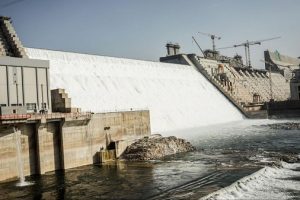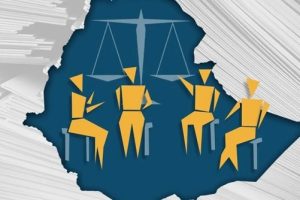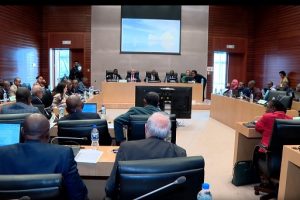BY ADDISALEM MULAT
Three years ago, journalists in Ethiopia were not allowed to disseminate information concerning what was going on all over the country and reveal the hidden truth as they saw fit. Aside from treading a tight walk, journalists were under the yoke of subjugation and muffled now and again.
Reasoning from this fact, miscellaneous journalists and bloggers were detained, prosecuted, and encountered arbitrary arrest and detention merely for familiarizing the population as a whole with hidden deeds and unspoken truth.
Sad as it might sound, on the grounds of the multifarious anti-terrorism law, most journalists of print and electronic media outlets of the country were unremittingly thrown into prison at various times. On several occasions, they were passing through many twists and turns.
In earlier times, Ethiopia was known for throwing journalists into prison under the guise of defamation, disinformation, and cooked-up stories. Besides, the Ethiopian People’s Revolutionary Democratic Front was restricting independent media and admittance to information no matter what the cost may be. In addition to that on the pretext of a wide spectrum of reasons, the ruling party of the past regime had shut down several publications.
However, when Prime Minister Abiy Ahmed came to office, he got started bringing down the tyrannical civil society law and freed plenty of journalists and bloggers. On top of that, the premier unblocked access to news websites and removed bans enforced by the then Ethiopian People’s Revolutionary Democratic Front. He as well has made TV channels such as the Ethiopian Satellite Television and Radio (ESAT) and Oromia Media Network (OMN) operate in Ethiopia at their discretion.
In the same manner, the premier was able to win the hearts and minds of everyone without exception by reforming repressive laws and breathing new into the media landscape of the country.
Once Prime Minister Abiy said regarding the media that “The first support that we can provide to any media is to speak, ask and write freely. We have taken a major stride in this regard. Those who are working on conventional and broadcast media based in foreign countries are now allowed to come and work in the country. We have unblocked hundreds of blocked bloggers. We have also tried to encourage writers to write freely, reported Ethiopian insight.
In the future we will work on how everyone can access information to assure the right to acquire information. We are studying how to add the number of people who can read and write. One thing I want you to understand is today is not like the previous times when it was necessary to establish a media house with a huge budget to disseminate information…because individuals can disseminate information every time as a citizen journalist which will put organized institutions to the test because these citizen journalists can disseminate the information before the media institutions can do it. So it needs to be synchronized, clear and professional. Citizen journalism does not need much resource and professional skills. So, we need to discuss how these individuals can disseminate information without affecting media institutions. We want to see an increase of print media. We want an increase of people who read them. We can respond to what needs to be done based on our studies. I think we took the first step by opening the venue for every one of you.
In connection with the third year anniversary of Abiy’s inauguration, The Ethiopian Herald has taken a look at his leadership’s reform in the media and political arena.
Speaking of the status of media landscape in the country over the past three years, Associate Professor Mustafa Worku, Head of the Department of Journalism and Communications at the University of Gondar told The Ethiopian Herald that after Prime Minister Abiy Ahmed took office, he managed to carry out carried out a wide spectrum of undertakings concerning media freedom. Aside from releasing quite a lot of journalists and bloggers, he managed to unblock several websites and TV channels to widen the political landscape of the country and shower journalists with media freedom.
“In a similar vein, the premier was able to cancel the Anti-Terrorism Law that was shackling the hands and feet of journalists and making their lives a living hell. Above and beyond, he has made journalists breathe a sigh of relief in the shortest possible time,” he added.
At the present moment, it is claimed that the print and electronic media outlets of the country have been giving prominence to the government’s agenda. To the best of my knowledge, media outlets of the country should be able to report the whole truth based on facts and organize themselves in terms of human resources, editorial policies, materials, and other things of a similar kind.
He went on to say, “As media is considered as a third state, journalists should discharge their duties and responsibilities by checking and balancing their works. But if they focus only on the government agenda, they cannot reap the fruit of accomplishment.”
As provocative language is one of the root grounds of disorders, they should be very wise not to miss the mark and incite violence among Ethiopians. They should as well distance themselves from reporting cooked-up stories, conflict-sensitive reporting, and racially subtle issues that could activate turbulence.
In a similar vein, journalists should know their rights and obligations and act accordingly. Likewise, they should set the agenda in a way that helps the country reap the fruits of accomplishment. If they take sides with political parties and the government, they will lose credibility. Moreover, journalists should respect journalism ethics and media standards. No matter what happens, they do not have to get off the track.
“As there are hate speech and disinformation prevention and suppression proclamation, journalists should abide by the law. As media freedom does not mean that they can report whatever they like, they should stick to media ethics and standards,” he wrapped up. Abiy, who has had significant contribution in reforming the media landscape, also helped widen the political climate too. Apart from delisting political parties that had been designated as terrorist groups, the prime minister also allowed banned political parties to reenter to the peaceful political struggle. He also brought significant changes in the democratic institutions by appointing independent officials to the National Electoral Board of Ethiopia and Ethiopian Human Rights Commission.
Reflecting on the political reform that has been ongoing over the past three years, in an interview, Girma Bekele, Chairperson of Hiber Ethiopia gave to The Ethiopian Herald said, “Even though the political and democratic landscape of the county has been flourishing on a national scale, we have not been able to secure benefits on the grounds of our self-centeredness.
“There is an opportunity in every part of the country. We do not listen to one another. We just want to be listened but we do not respect others’ ideas. We do not sit down and discuss and make an effort to get to the bottom of our problems. We need to distance ourselves from this kind of mentality.”
To the best of my knowledge, political parties should be able to respect rules of laws and give priority to their motherland. They should respect and obey the law and act accordingly without batting an eye. Besides, we do not have to give room for foreign interference and do the whole lot in our own way. We should stand on our feet.
“The other thing is we can broaden the political landscape of the country more than ever before through discussion, filling potential gaps and other related aspects,” he wrapped up.
The Ethiopian Herald April 2/2021




